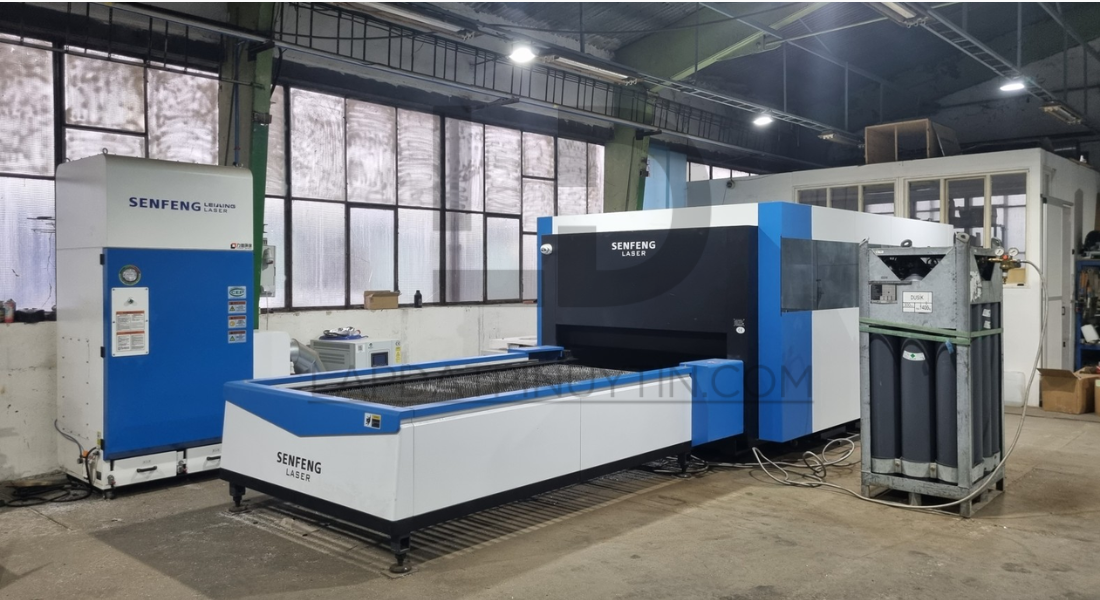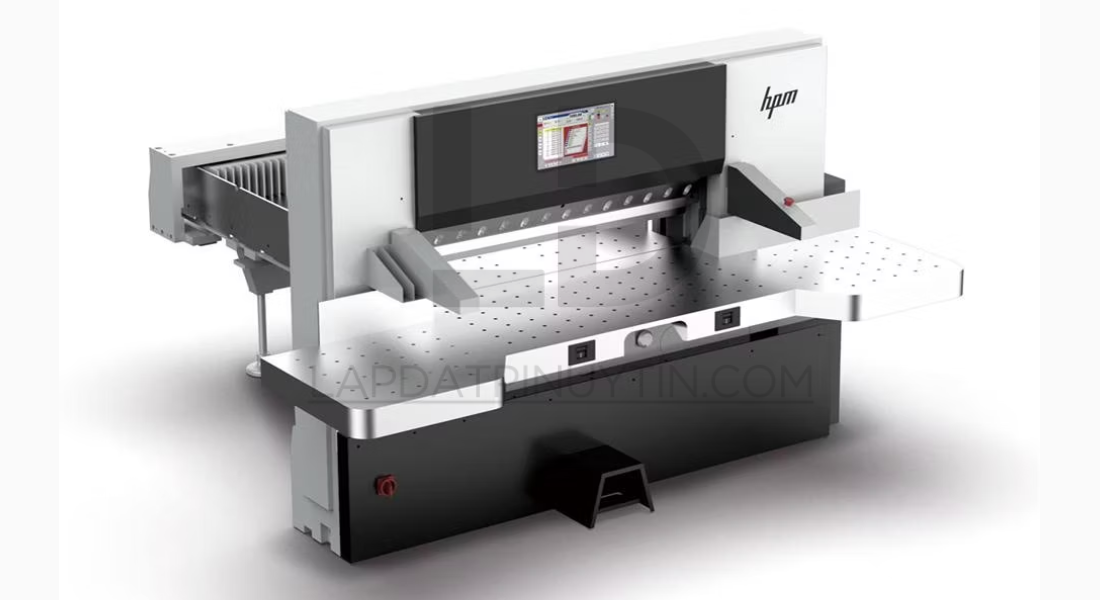Engineering demands precision, and high tech cutting machines for engineering have emerged as indispensable tools in modern industries. Designed to deliver unparalleled accuracy and efficiency, these machines cater to a range of applications, from prototyping to mass production.
The Role of High Tech Cutting Machines for Engineering in Modern Industries
As industries evolve, the demand for precision and speed in manufacturing continues to rise. High tech cutting machines for engineering play a crucial role in meeting these needs, enabling manufacturers to produce high-quality components with minimal waste.
Bridging Innovation with Practicality
These machines blend advanced technology with practical applications. Whether cutting metals, plastics, or composites, they achieve intricate designs with consistent accuracy, making them essential in fields like aerospace, automotive, and electronics.
Boosting Productivity and Reducing Costs
The ability to automate processes and deliver repeatable results ensures that high tech cutting machines not only enhance productivity but also reduce operational costs. By minimizing material waste and errors, they contribute significantly to cost savings.
Key Features of Advanced Cutting Machines
Modern cutting machines incorporate groundbreaking features that distinguish them from traditional equipment. Understanding these features can help businesses make informed decisions when investing in high tech solutions.
Precision Engineering for Complex Tasks
High tech cutting machines excel at handling complex geometries. Their precision capabilities allow for the creation of intricate components, making them ideal for industries that demand detailed designs.
Versatility Across Materials
One of the standout qualities of these machines is their ability to cut a wide variety of materials. From robust metals like titanium to delicate materials like acrylic, these machines adapt seamlessly to different requirements.
Advanced Software Integration
Cutting machines today come equipped with software that enables seamless integration with CAD/CAM systems. This feature simplifies the process of translating designs into finished products while maintaining accuracy.
Applications of High Tech Cutting Machines for Engineering
The versatility of high tech cutting machines makes them suitable for numerous applications across diverse industries. Their ability to perform under challenging conditions has transformed how components are designed and manufactured.
Aerospace Industry: Meeting High Standards
The aerospace sector relies heavily on these machines for their ability to meet stringent quality standards. From cutting turbine blades to shaping fuselage components, these machines are vital for ensuring safety and efficiency.
Automotive Industry: Redefining Speed and Efficiency
In the automotive industry, high tech cutting machines enable rapid prototyping and precise manufacturing of parts. Their role in creating lightweight yet durable components contributes to improved vehicle performance.
Electronics Industry: Miniaturization with Precision
As electronics become smaller and more complex, the need for precise cutting grows. These machines excel in creating components like printed circuit boards (PCBs) with exceptional detail and accuracy.
Benefits of Investing in High Tech Cutting Machines
For businesses aiming to stay ahead in competitive markets, investing in high tech cutting machines offers numerous advantages. From quality improvements to operational efficiencies, these machines deliver on multiple fronts.
Enhanced Accuracy and Consistency
Traditional cutting methods often struggle with consistency, but high tech cutting machines ensure uniform results across batches. This reliability is critical in industries where precision is non-negotiable.
Reduced Downtime and Maintenance
Modern cutting machines are built for durability and efficiency. Advanced self-diagnostic features reduce downtime by identifying potential issues early, allowing for timely maintenance and uninterrupted operations.
Customization for Unique Requirements
High tech cutting machines are highly adaptable, offering customization options that cater to unique manufacturing needs. Businesses can tailor these machines to align with specific workflows and material types.
Choosing the Right Cutting Machine for Your Needs
Selecting the right cutting machine requires careful consideration of various factors. By understanding the options available, businesses can find solutions that align with their goals and budget.
Evaluate Your Material Requirements
Different cutting machines are optimized for specific materials. For instance, laser cutters excel in handling metals and plastics, while waterjet cutters are better suited for materials that are sensitive to heat.
Assess Speed and Precision Needs
The choice of cutting machine also depends on the balance between speed and precision required for your applications. Industries focusing on mass production may prioritize speed, while those needing intricate designs will value precision.
Consider Long-Term Costs
While initial investment is a significant factor, long-term costs like maintenance, energy consumption, and material waste should also be considered. Opting for energy-efficient machines can lead to substantial savings over time.
Types of High Tech Cutting Machines for Engineering
The market offers a wide range of cutting machines, each tailored to specific applications. Understanding these types can help businesses identify the most suitable equipment for their needs.
Laser Cutting Machines: Power and Precision
Laser cutters use concentrated beams of light to cut through materials. They are known for their precision and ability to handle intricate designs, making them ideal for industries like electronics and jewelry.
Waterjet Cutting Machines: Versatile and Cold Cutting
Waterjet cutters use high-pressure streams of water mixed with abrasives to cut materials. Their cold cutting method makes them suitable for heat-sensitive materials like composites and glass.
Plasma Cutting Machines: Efficiency for Metalwork
Plasma cutters utilize ionized gas to cut through conductive metals like steel and aluminum. They are prized for their speed and efficiency, particularly in industrial metalworking.
Future Trends in High Tech Cutting Machines for Engineering
The evolution of cutting technology shows no signs of slowing down. Emerging trends indicate that these machines will become even more advanced, offering unparalleled capabilities.
Integration with Artificial Intelligence
Artificial intelligence is set to revolutionize cutting machines, enabling predictive maintenance, real-time monitoring, and adaptive cutting strategies. These advancements will further enhance efficiency and precision.
Eco-Friendly Cutting Solutions
Sustainability is becoming a priority in manufacturing. Future cutting machines will likely incorporate eco-friendly technologies, such as reduced energy consumption and recyclable materials.
Enhanced Connectivity with IoT
The Internet of Things (IoT) is transforming manufacturing by enabling machines to communicate with each other. Cutting machines integrated with IoT will allow for seamless coordination across production lines.
Conclusion: High Tech Cutting Machines for Engineering Drive Innovation
The adoption of high tech cutting machines for engineering represents a significant step forward for industries seeking to enhance precision, efficiency, and innovation. These machines not only streamline production processes but also open new possibilities for design and manufacturing.
Whether you’re in aerospace, automotive, or electronics, the advantages of investing in cutting-edge technology are clear. By choosing the right equipment and staying ahead of industry trends, businesses can achieve their goals and set new standards for excellence.

